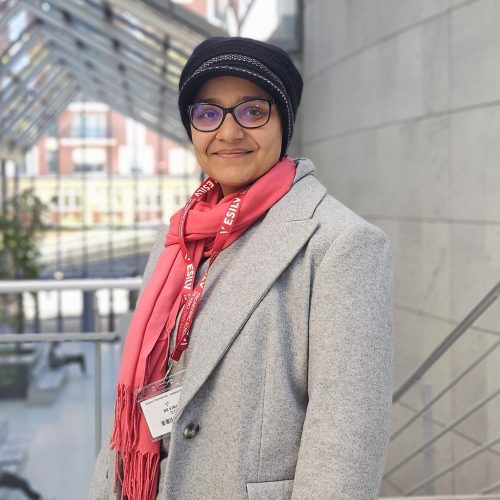
I am a Teacher-Researcher in Engineering Sciences at ESILV and responsible of the HPC and AI program since October 2024. I obtained my Ph.D. in Theoretical Physics, specializing in Condensed Matter, in January 2022. From April 2022 to September 2024, I worked as a Postdoctoral Researcher at the École Normale Supérieure (ENS) in Paris, affiliated with the CNRS. My doctoral and postdoctoral work has focused on the theoretical modeling of electronic, mechanical, vibrational, linear and nonlinear optical properties, and transport of various materials, ranging from three-dimensional and two-dimensional structures to zero-dimensional structures (quantum dots). I have studied materials ranging from semi-metals to semiconductors, including transition metal dichalcogenides MX2 (M=Mo, W, X=Se, S, Te), monolayer, multilayer, and bulk Platinum diselenide PtSe2, nanoplatelets and quantum dots of cadmium selenide CdSe as well as germanium monochalcogenides GeS, perovskites. My thesis intitled :Contribution to the study of the optical and dynamic properties of excitons and trion in 2D materials: Transition metal dichalcogenides (TMDCs) and CdSe Nanoplatelets. It focused on the in-depth study of the optical and dynamic properties of excitons and trions in transition metal dichalcogenides (TMDs) and CdSe nanoplatelets. . During my doctoral studies, I collaborated with an experimental team at the Institute of Optics and Atomic Physics at Technische Universität Berlin (TU Berlin) in the group of Prof. Ulrike Woggon, in partnership with Dr. Alexander W. Achtstein. These internships focused on experimental studies of colloidal two-dimensional nanoplatelets using optical spectroscopy, Raman spectroscopy, and advanced modeling of excitonic states and system dynamics based on theoretical concepts. The internships at TU Berlin led to a highly productive collaboration, resulting in several joint publications, including: Sabrine Ayari et al., Nanoscale, 12, 14448-14458 (2020). During my postdoctoral research, I was a part of the theoretical team of the European project "EXTREME-IR," under the supervision of Prof. Robson Ferreira at ENS. We closely collaborate with several experimental partners, including Dr. Sukhdeep Dhillon, project leader and head of the THz team at ENS, Dr Emmanuel Baudin at ENS, Prof. Andras Kis at EPFL, as well as Dr. Prof. Dmitry Turchinovich at the University of Bielefeld in Germany. This enriching experience has allowed me to actively contribute to innovative research within a high-level collaborative and international environment. During my postdoctoral research, I conducted theoretical calculations as part of the Extreme Optical Nonlinearities in Two-Dimensional Materials for Far-Infrared Photonics (EXTREME-IR) project. My primary goal was to identify ideal candidates among 2D materials that could serve as highly efficient solid-state sources in the far-infrared (FIR) region. This involved investigating and optimizing the electronic and optical (both linear and nonlinear) properties of 2D transition metal dichalcogenides (TMDs) and Dirac materials (DMs). I have published several research articles in highly renowned international journals, including: Minoosh Hemmat, Sabrine Ayari et al., InfoMat, e12468 (2023).
Optical Absorption in Indirect Semiconductor to Semimetal PtSe2 Article de journal
Dans: Physical Review Letters, vol. 134, no. 6, p. 066901, 2025.
No posts by this author.
